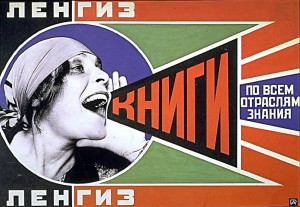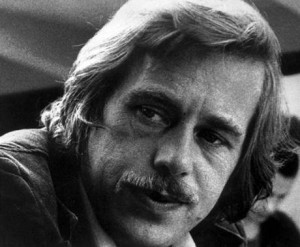
I have a modest goal in this course. I want to provide you with a systematic way of understanding the phenomenon of world communism from its genesis to its demise. To this end, I will acquaint you with two themes:
- The theoretical issues in the study of communism. Why did communist parties take hold in different locations? What accounts for their diversity? Why did some communist experiments go terribly wrong? Why did they ultimately fail?
- The formative historical experiences of countries like the Soviet Union and China. My approach should enable you to interpret the history of any communist state in the Twentieth or Twenty-first century.
We will cover a large swath of political history in this class, roughly 150 years. For this reason, I will ask you to read a lot. Assignments will include both primary and secondary sources.
VERY IMPORTANT: Be sure to follow the assignments on this Web Syllabus closely. The great thing about this syllabus format is that it offers me the flexibility to mold the course as we go along. Thus, you should expect me to make changes on a regular basis.
Books. There are five required books in this course as well as a small Reader which you can purchase in the Decio Copy Center.
-
Karl Marx and Friedrich Engels, The Communist Manifesto (1848). At first glance, the Manifesto seems like a brief exposition of a few revolutionary goals. Yet this essay can reasonably counted among the most important works of modern times. Read the Manifesto carefully. Devour its ideas, predictions, and revolutionary spirit. Look for the big picture.
-
Rosenberg and Young, Transforming Russia and China. This book provides excellent historical background to all of the themes in the course. It is also one of the few successful comparative studies of Russia’s and China’s journey with communism.
-
John Scott, Behind the Urals. A fantastic first-hand account of the building of socialism in the Soviet Union in the 1930s. How is Scott just like you?
-
Arthur Koestler, Darkness at Noon. One of my favorite books. Koestler provides a provocative answer to one of the most important question before humanity: why do smart, educated people do evil things?
-
Vaclav Havel, Open Letters: Selected Writings.

Vaclav Havel We will read the long chapter entitled “The Power of the Powerless.” This is a challenging but incredibly provocative essay. My students routinely report that Havel’s ideas have shaped their lives.
Virtual Sources: As the father of two Notre Dame graduates, I am acutely aware of the cost of textbooks. To save you money, I have posted many of our required reading assignments, as well as some nice videos, on this Syllabus. These articles and readings are as important as the books in the course. We will expect you to have read all of them. Print the articles marked “Print and Read” and put them in a binder so that you can take copious notes on each of them. You should bring all of the assigned readings to your discussion section. You do not have to print the other articles.
Films: We will have at least one film. We will watch the first half of the film, “The Inner Circle” (HERE), during class on Wednesday, February 11. To give you flexibility, we will then show the remaining segment of the film both that evening (Feb.11) and the following evening (Feb. 12).
Your Performance: Your performance in this course will be evaluated on the basis of reflective writing assignments, and active, enthusiastic participation in discussion section and on Sakai. You will have three essays and multiple short paragraphs.
Essays:
First Essay Assignment 15 percent
Second Essay Assignment 20 percent
Final Essay Assignment 35 percent
Discussion Sections:
Participation, Paragraphs and Sakai discussions 30 percent
Attendance: Class attendance is MANDATORY if you want to pass the course. Unless you are ill, please consult with me beforehand if you know you will miss a class. If you are ill, please send me an email so that I do not worry about you. University-approved absences are fine, but please tell me beforehand if you will be gone.
Office Hours: I hold regular office hours after class on Wednesdays, 10:45-11:45. I also hold office hours on Thursdays, 1:30-3:30. If you absolutely cannot make those times, please ask me for an appointment. I enjoy meeting with all of my students. Please feel comfortable visiting me. I will be glad to discuss anything you want, not just the course. Here is an abbreviated list of the kinds of topics I like to talk about: Notre Dame, politics, religion, music, $$$ you can get from the Nanovic Institue, your personal calling, the meaning of life.
My office is in 211 Brownson Hall in the Office of the Nanovic Institute for European Studies, of which I am director. Brownson is located behind the Main Building. It is one of the few remaining original structures on campus that has not yet been replaced with a modern parody of Gothic architecture.
?
The use of electronic devices of any kind, including laptops, I-pads, cell phones, trap and trace tools, video cameras, broadcasts of “Serial,” and other personal digital devices, is prohibited in my classroom!